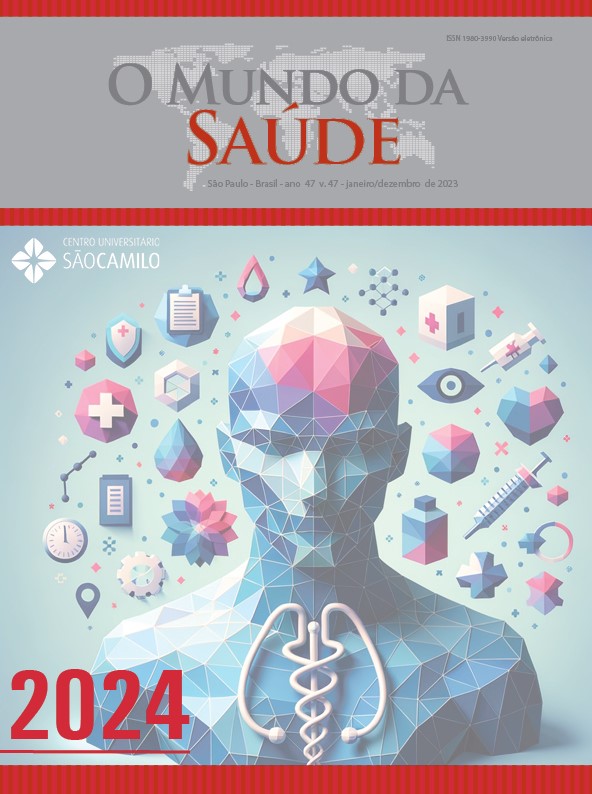The ethical conduct of nutrition undergraduates at a public university in Brazil
DOI:
https://doi.org/10.15343/0104-7809.202448e15302023PKeywords:
Nutrition, Higher Education, Scientific MisconductAbstract
The practice of academic misconduct seems to be routine in undergraduate studies. Therefore, addressing ethical conduct in training is a starting point to promote debate on the construction of knowledge. This study aimed to analyze the academic misconduct of nutrition undergraduates. A cross-sectional study was performed with Nutrition students at a public university in Brazil. Participants included 105 students took part in the study: 42.9% were on the 1st to the 5th semesters and 57.1% on the 6th to the 9th semesters. Students on the final semesters had a higher prevalence of “letting the colleagues copy the answers” (p=0.05), “using ready-made work” (p=0.04), and “included their name on a paper without collaboration” (p=0.01). The main motivations for academic misconduct were: colleagues cheating (71.4%), believing that professors had committed misconduct (70.5%), difficult subjects (52.4%), and maintaining good grades (50.5%). Students on the last semesters reported lack of time (p=0.05) as a reason, and 10.5% mentioned having performed nutrition appointments without supervision. Given the high prevalence of academic misconduct in undergraduate courses, it is suggested that the discipline on ethics be taught in the initial semesters, in addition to offering courses and conversation circles on intellectual property, ethical conduct, time management, and teaching methodologies.
Downloads
References
Martinez L, Ramírez R. Academic fraud by university students in Colombia: How chronic is the illness? Educação e Pesquisa 2018;44:1-17. DOI: 10.1590/S1517-9702201706157079.
Hughes JC, Eaton S. Academic misconduct in higher education: beyond student cheating [livro eletrônico]. Canada: Springer. 2022. Acessado em 05 de fevereiro de 2024. DOI:10.1007/978-3-030-83255-1_4.
Sierra JJ, Hyman MR. Ethical Antecedents of cheating intentions: Evidence of mediation. J Acad Ethics 2008;6:51–66. DOI: 10.1007/ s10805-008-9056-x.
Eshet Y, Grinautski K, Peled Y, Barczyk C. No more excuses – personality traits and academic dishonesty in online courses. Journal of Statistical Science and Application 2014;2:111-118. DOI: 10.17265/2328-224X/2014.03.004
Sousa RN, Conti VK, Salles AA, Mussel, ICR. Desonestidade acadêmica: reflexos na formação ética dos profissionais de saúde. Rev. bioét. 2016;24(3):459-468. DOI: 10.1590/1983-80422016243145.
Veludo-de-Oliveira TM, Aguiar FHO, Queiroz JP, Barrichello A. Cola, plágio e outras práticas acadêmicas desonestas: um estudo quantitativo-descritivo sobre o comportamento de alunos de Graduação e Pós-graduação da Área de Negócios. Rev. Adm. Mackenzie. 2014;15(1):73-97. DOI: 10.1590/S1678-69712014000100004.
Crown DF, Spiller MS. Learning from the literature on collegiate cheating: A review of empirical research. Journal of Business Ethics 1998;17:683-700. DOI: 10.1023/A:1017903001888.
Mccabe DL, Butterfield KD, Treviño LK. Academic dishonesty in graduate business programs: prevalence, causes, and proposed action. Academy of Management Learning & Education. 2006;5(3):294-305. DOI: 10.5465/amle.2006.22697018
Pimenta MAA, Pimenta SA. Fraude em avaliações no ensino superior do Brasil: aproximações com uma pesquisa de Portugal. Avaliação: Revista da Avaliação de Educação Superior 2016;21(3):953-974. DOI: 10.1590/S1414-40772016000300014.
Naghdipour B, Emeagwali OL. Students’ justifications for academic dishonesty: call for action. Procedia- Social and Behavioral Sciences 2013;83:261-265. DOI: 10.1016/j.sbspro.2013.06.051.
Krokoscz M. Abordagem do plágio nas três melhores universidades de cada um dos cinco continentes e do Brasil. Revista Brasileira de Educação. 2011;16(48):745-818.
Conselho Federal de Nutricionista. Resolução CFN nº599, de 25 de fevereiro de 2018. Brasília:CRN; 2018. Disponível em: https:// www.cfn.org.br/wp-content/uploads/2018/04/codigo-de-etica.pdf.
Grimes PW. Dishonesty in academics and business: A cross-cultural evaluation of student attitudes. Journal of Business Ethics 2004;49(3):273-290. DOI: 10.1023/B:BUSI.0000017969.29461.30.
Toledo E, Barone PVB, Guedes PCCWA. O estágio supervisionado do curso de nutrição da UFJF: legislação, formação e aprimoramento. Revista Pesquisa e Debate em Educação. 2020; 2020;5(2):26-44.
Brasil. Lei nº 8.234, de 17 de setembro de 1991. Dispõe sobre a regulamentação da profissão de Nutricionista e determina outras providências. Diário Oficial da União. Disponível em: http://www.planalto.gov.br/ccivil_03/leis/1989_1994/l8234.htm.
Hutton PA. Understanding Student Cheating and What Educators can do About it. College Teaching 2006;54(1):171-176. DOI: 10.3200/CTCH.54.1.171-176.
Gama P, Peixoto P, Seixas AM, Almeida F, Esteves D. A ética dos alunos de administração e de economia no ensino superior. Revista de Administração Contemporânea 2013;17(5):620-641. DOI: 10.1590/S1415-65552013000500007.
Nogueira EG, Matos NC, Machado JN, Araujo LB, Silva AMTC, Almeida RJ. Avaliação dos níveis de ansiedade e seus fatores associados em estudantes internos de Medicina. Revista Brasileira de Educação Médica 2021; 45(1):e017. DOI: 10.1590/1981- 5271v45.1-20200174.
Brimble M, Stevenson-Clarke P. Perceptions of the prevalence and seriousness of academic dishonesty in Australian universities. The Australian Educational Researcher. 2005;32:19-44. DOI: 10.1007/BF03216825.
Perry B. Exploring academic misconduct: some insights into student behaviour. Active Learning in Higher Education 2010;11(2):97- 108. DOI: 10.1177/1469787410365657.
Silva GA, Rocha MM, Otta E, Pereira YL, Bussab VSR. Um estudo sobre a prática da cola entre universitários. Psicologia: Reflexão e Crítica 2006;19(1):18-24. DOI: 10.1590/S0102-79722006000100004.
Pardo A, Rodríguez-Casals C. Fraude académico en la universidad: Análisis de un caso real, el conflicto y su resolución. Archivos Analíticos de Políticas Educativas. 2019;27(40):1-19.
Downloads
Published
How to Cite
Issue
Section
License
Copyright (c) 2024 O Mundo da Saúde

This work is licensed under a Creative Commons Attribution 4.0 International License.






























